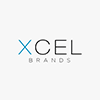
XELB
Xcel Brands($XELB) CEO and Director Buy Together at $1.10, Matching Offering Price as 'Bottom Signal'
08/05/2025 20:12
Sentiment
C-Level
Summary
- Xcel Brands CEO and director simultaneously purchased $237,600 worth of shares at $1.10 on August 4th, matching the public offering price as a strong confidence signal
- Despite severe financial distress (cash $298K vs debt $15.27M, current ratio 0.28), shows improvement signs through restructuring efforts
- Extreme undervaluation (P/B 0.10-0.38, analyst target $8) presents both turnaround expectations and survival risks
POSITIVE
- Management confidence confirmed through simultaneous large-scale insider purchases ($237,600) by CEO and director
- 56% improvement in adjusted EBITDA and cost reduction achievements through restructuring program
- New revenue streams secured including Coco Rocha partnership and Cesar Millan brand licensing
- Extreme undervaluation (P/B 0.10-0.38, P/S 0.37) with analyst price target of $8
- Social commerce growth potential through influencer network with 45 million combined followers
NEGATIVE
- Severe liquidity crisis (cash $298K, current ratio 0.28) poses short-term survival risks
- Persistent large losses (net loss $18.9M, operating margin -138.96%) and negative cash flow
- High short interest (14.34%) and 87% decline from 52-week high
- Operational challenges including tariff impacts, HSN-QVC integration, and intensifying industry competition
- Regulatory compliance issues with delayed SEC filings and limited institutional support (10.17%)
Expert
From a consumer cyclical perspective, Xcel Brands' insider buying represents a highly significant signal. Given the brand licensing model's fixed cost structure, revenue increases can create substantial leverage effects, while the influencer-based social commerce strategy aligns with Gen Z consumption trends. However, survival viability remains the key variable amid intense apparel industry competition and concerns over consumer spending slowdown.
Previous Closing Price
$1.2
+0.09(8.11%)
Average Insider Trading Data Over the Past Year
$1.11
Purchase Average Price
$0
Sale Average Price
$332.5K
Purchase Amount
$0
Sale Amount
Transaction related to News
Trading Date | Filing Date | Insider | Title | Type | Avg Price | Trans Value |
|---|---|---|---|---|---|---|
12/21/2025 | 12/21/2025 | Sale | $ |
Apparel brand licensing specialist Xcel Brands ($XELB) is sending a strong confidence signal from management at historically low share prices. On August 4th, CEO Lorenrobert D and Director Mark Disanto simultaneously purchased shares worth $136,620 and $100,980 respectively, totaling $237,600 in insider buying. Notably, their purchase price of $1.10 exactly matches the public offering price announced on August 1st. Xcel Brands is a New York-based brand licensing company with a portfolio of renowned brands including Halston, Judith Ripka, and C Wonder. The company sells apparel, footwear, accessories, jewelry, and home goods through interactive TV, digital live-stream shopping, and social commerce platforms, recently focusing on influencer-driven brand expansion. The company particularly leverages collaborations with influencers who have a combined social media reach of over 45 million followers. However, the financial reality is challenging. The company faces serious financial distress with trailing twelve-month revenue of $7.41 million but net losses of $18.9 million. Cash reserves stand at merely $298,000 compared to total debt of $15.27 million. A current ratio of 0.28 indicates severe short-term liquidity risks. In this context, simultaneous substantial purchases by the CEO and director are highly unusual. The timing of insider purchases is particularly significant. Management bought shares at $1.10, identical to the public offering price, immediately after the company raised $2.6 million through the offering. This strongly suggests management believes the current share price is substantially undervalued relative to the company's intrinsic value. The CEO's purchase was made through the Irrevocable Trust of Rose Dempsey, while the director's purchase was through The Mark X DiSanto Investment Trust, with DiSanto's restricted shares scheduled to vest on November 1st. The company is attempting a turnaround through its 'Project Fundamentals' restructuring program. First quarter adjusted EBITDA losses improved 56% year-over-year, and net losses were reduced by 56%. Management targets quarterly operating expenses below $2.5 million and projects 2025 adjusted EBITDA to turn positive at $1-2.5 million. Strategic developments also show promise. In June, the company formed a strategic partnership with global fashion icon Coco Rocha, secured pet brand licensing with Cesar Millan, and established kitchenware collaborations with TSC Product Lab. The company also attracted a $9 million strategic investment from United Trademark Group. However, investors must remain cautious. Short interest represents 14.34% of the float, reflecting market skepticism. Share price has declined 87% from its 52-week high of $8.49. Operational challenges include intensifying competition in apparel manufacturing, tariff impacts, and HSN's integration into QVC. From a valuation perspective, the stock appears extremely undervalued. Price-to-book ratios of 0.10-0.38 and price-to-sales ratio of 0.37 are significantly below industry averages. Analyst price targets around $8 suggest upside potential of over 600% from current levels. Key metrics investors should monitor include next quarter's achievement of positive adjusted EBITDA. If management delivers the projected $1-2.5 million positive EBITDA, share price revaluation becomes likely. Conversely, accelerated cash burn or failure to secure additional funding could increase survival risks. The current ratio of 0.28 indicates that short-term liquidity management is crucial for survival. The current situation exhibits classic 'deep value' investment opportunity characteristics: extremely undervalued shares, strong management buying signals, and signs of improvement through restructuring. However, survival risks remain, and the small-cap nature implies high volatility.